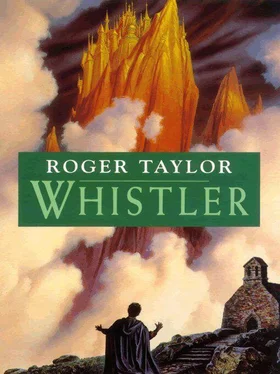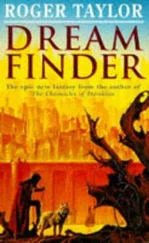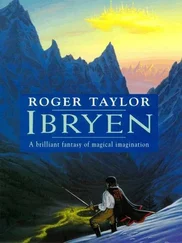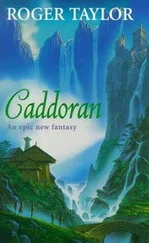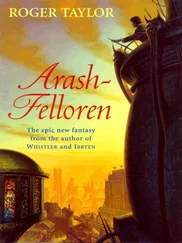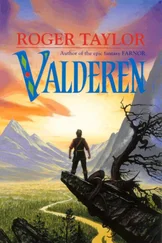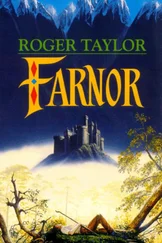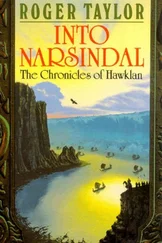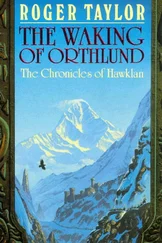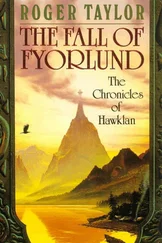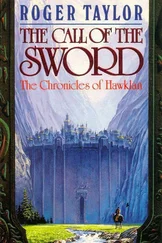Roger Taylor - Whistler
Здесь есть возможность читать онлайн «Roger Taylor - Whistler» весь текст электронной книги совершенно бесплатно (целиком полную версию без сокращений). В некоторых случаях можно слушать аудио, скачать через торрент в формате fb2 и присутствует краткое содержание. Жанр: Фэнтези, на английском языке. Описание произведения, (предисловие) а так же отзывы посетителей доступны на портале библиотеки ЛибКат.
- Название:Whistler
- Автор:
- Жанр:
- Год:неизвестен
- ISBN:нет данных
- Рейтинг книги:4 / 5. Голосов: 1
-
Избранное:Добавить в избранное
- Отзывы:
-
Ваша оценка:
- 80
- 1
- 2
- 3
- 4
- 5
Whistler: краткое содержание, описание и аннотация
Предлагаем к чтению аннотацию, описание, краткое содержание или предисловие (зависит от того, что написал сам автор книги «Whistler»). Если вы не нашли необходимую информацию о книге — напишите в комментариях, мы постараемся отыскать её.
Whistler — читать онлайн бесплатно полную книгу (весь текст) целиком
Ниже представлен текст книги, разбитый по страницам. Система сохранения места последней прочитанной страницы, позволяет с удобством читать онлайн бесплатно книгу «Whistler», без необходимости каждый раз заново искать на чём Вы остановились. Поставьте закладку, и сможете в любой момент перейти на страницу, на которой закончили чтение.
Интервал:
Закладка:
Roger Taylor
Whistler
Chapter 1
Clouds, dark and ominous, bloomed menacingly out of the north. Slowly, throughout the day, mass piled upon mass, higher and higher, as if those leading the vanguard were being overrun by panicking hordes behind.
Eyes that had been lifted casually towards them in the morning became narrowed and concerned as the day progressed, for the clouds were grimly unseasonable. Sour-natured weather was to be expected as winter fought to hold its ground against the coming spring: dark skies and blustering, buffeting winds bearing cold rains, and perhaps even yet a little snow would offer no great surprises. But this…?
This was surely a monstrous blizzard pending, the kind that was rare even at the heart of winter.
‘It’ll only be a thunderstorm,’ some declared, knowingly, though more to hear the reassurance in the words than from any true knowledge.
For there was no tension in the air, no tingling precursor of the tumult to come, raising the hackles of men and beasts alike.
Yet there was something hovering before this dark and massive tide, something that flickered elusively into the senses like an image caught in the corner of the eye that disappears when looked at directly. Something that was unpleasant – menacing even.
Something primitive. And awful.
None spoke of it.
The land that lay in the advancing shade of this strange tide was a great spur that protruded south from a vast continent. It bore the name it had always borne – Gyronlandt. Once, according to legend, it had been a single mighty state glorying in its strength and prosperity, and the name still resonated with that past. Through the ages, however, that same legend declared, Gyronlandt had been riven by terrible civil strife and then by invasions of desperate peoples from across the seas, fleeing terrors and wars of their own. And despite many attempts to hold to this ancient unity – some wise, some foolish – Gyronlandt had drifted relentlessly towards what it was today, a land of a score or so different states living more or less peacefully together. A land that had been thus ever since ringing legend had dwindled into mere history and the thundering rhetoric of mythical heroes had become the ranting and mewling of an interminable list of political leaders in whose wake lay, inevitably, a long tangled skein of unfulfilled promises and broken pacts and treaties.
Nevertheless, the notion that ‘one day’ Gyronlandt would be united again still held some charm for almost all the peoples of the land, and often formed a rosy backdrop to any revels of a remotely patriotic nature. That the several states were ruled (and misruled) by as many different institutions of government, and that these institutions were frequently changed – sometimes peacefully, sometimes not – did nothing to further any cause towards such unity. Nor did the equally persistent idea that the present disunity was ‘of course’ due to ‘them’. The identity of ‘them’ varied from time to time, depending on which neighbouring state was in or out of favour, but certainly it was never ‘us’.
Gyronlandt was separated from the lands of the northern continent by an intimidating mountain range, across which only occasional traders and other desperate men would venture. The forces that had formed these mountains had also thrown up a craggy rib down the middle of Gyronlandt which culminated at its most southerly point in a region jagged with a jumble of lesser mountains. This was Canol Madreth, the smallest and most central of Gyronlandt’s states. It was also the only one whose boundaries had remained unchanged, though this was due mainly to the fact that no one saw any benefit in fighting to annex a land that consisted mainly of mountains and steep-sided valleys of uncertain fertility. Still less could anyone see any benefit in holding sway over the inhabitants of Canol Madreth – the Madren.
To the more kindly disposed of the other peoples of Gyronlandt, the Madren were said to be reserved. Others, less charitably, referred to them as rude and churlish, and frequently linked these attributes with stupidity as well. It could not be denied that the Madren’s attitude to outsiders was often an unnerving mixture of chilling politeness and open mistrust, and it did little to endear them to anyone. Not that this seemed to concern them. They considered themselves to be markedly superior to all their neighbours.
And, almost unique amongst the peoples of Gyronlandt, the Madren were religious. Indeed, they had a state religion – Ishrythan. It was a sombre-faced creed involving a stern deity, Ishryth, who together with a triumvirate of Watchers, was responsible for the creation and continuation of all things. Ishryth was forever battling against the depredations of his brother, Ahmral, who, with a trio of his own, the Uleryn, sought constantly to lead mankind astray so that in the ensuing chaos he might remake Ishryth’s creation in his own image. Ishrythan was a religion of duty and dedication, not joy or pleasure, promising bliss in the future only for appropriate behaviour now, and heavily larded with threats of eternal damnation for back-sliders. Of the other religions that existed throughout Gyronlandt, almost all derived from the same holy book as the Madren’s Ishrythan, the Santyth, though most of them held celebration at their hearts, and in so far as they considered it at all, their followers tended to look upon Ishrythan as at best a misinterpretation of the Santyth and at worst, a wilful distortion; a heresy.
Not that such thoughts were of any great significance for, even among the Madren, few in Gyronlandt held to their religion with any great proselytizing zeal. Such quarrels as existed between the various states were mercifully free from such fervour and were usually associated with trade and commerce, although occasionally tempers would flare over some long-disputed border lands. Whatever the ostensible cause of many of these disputes, there was not infrequently a large element of sheer habit in them.
At the centre of Canol Madreth stood the Ervrin Mallos, Gyronlandt’s highest peak. It rose high above its neighbours and dominated much of Canol Madreth. Indeed, its jagged broken summit could be seen from many of the surrounding states.
The Ervrin Mallos had a curiously isolated appearance, as if it did not truly belong there but had been mysteriously transported from its true home in the great northern range. The Santyth told a tale of a fearsome lord of the earth, then in human form, who had sought to destroy a great army of Ishryth’s followers who were preparing to invade the island of Gyronlandt, then an evil place.
‘… and, turning from this, Ishryth saw that Ahmral had given great power unto the chosen of his Uleryn who by his will now moved the isle through the waters of the ocean as though it were the merest coracle. And as the isle was driven upon the shores of the land, so the gathering army of the righteous was destroyed and buried beneath a mighty mountain range. And, so great was his pain, Ishryth cried out, his voice rending the very heavens. “As ye have given so shall ye receive,” and, reaching forth, he tore from the still trembling mountains a great peak and hurled it down upon the Uleryn, destroying his earthly form forever.’
Children’s tales, grimmer by far, told a darker, more claustrophobic story of a terrible king who was entombed for his cruelty and foul magics, and whose last cry of terror at this fate was so awful that the land above could not withstand it and rose up into a great mountain until the sound could be heard no more.
It was also said that the Ervrin Mallos was the resting place of a great prince who, at Ishryth’s will – or was it Ahmral’s? – lay sleeping until a dark, winged messenger should bring him forth at some time of need. This however, had neither the credence offered by the Santyth, nor the dark certainty of truth that lies in children’s whispered secrets, and was generally deemed to be a mere fabrication, although some said that it was in fact a true tale, but one brought by some ancient traveller from another place.
Читать дальшеИнтервал:
Закладка:
Похожие книги на «Whistler»
Представляем Вашему вниманию похожие книги на «Whistler» списком для выбора. Мы отобрали схожую по названию и смыслу литературу в надежде предоставить читателям больше вариантов отыскать новые, интересные, ещё непрочитанные произведения.
Обсуждение, отзывы о книге «Whistler» и просто собственные мнения читателей. Оставьте ваши комментарии, напишите, что Вы думаете о произведении, его смысле или главных героях. Укажите что конкретно понравилось, а что нет, и почему Вы так считаете.
